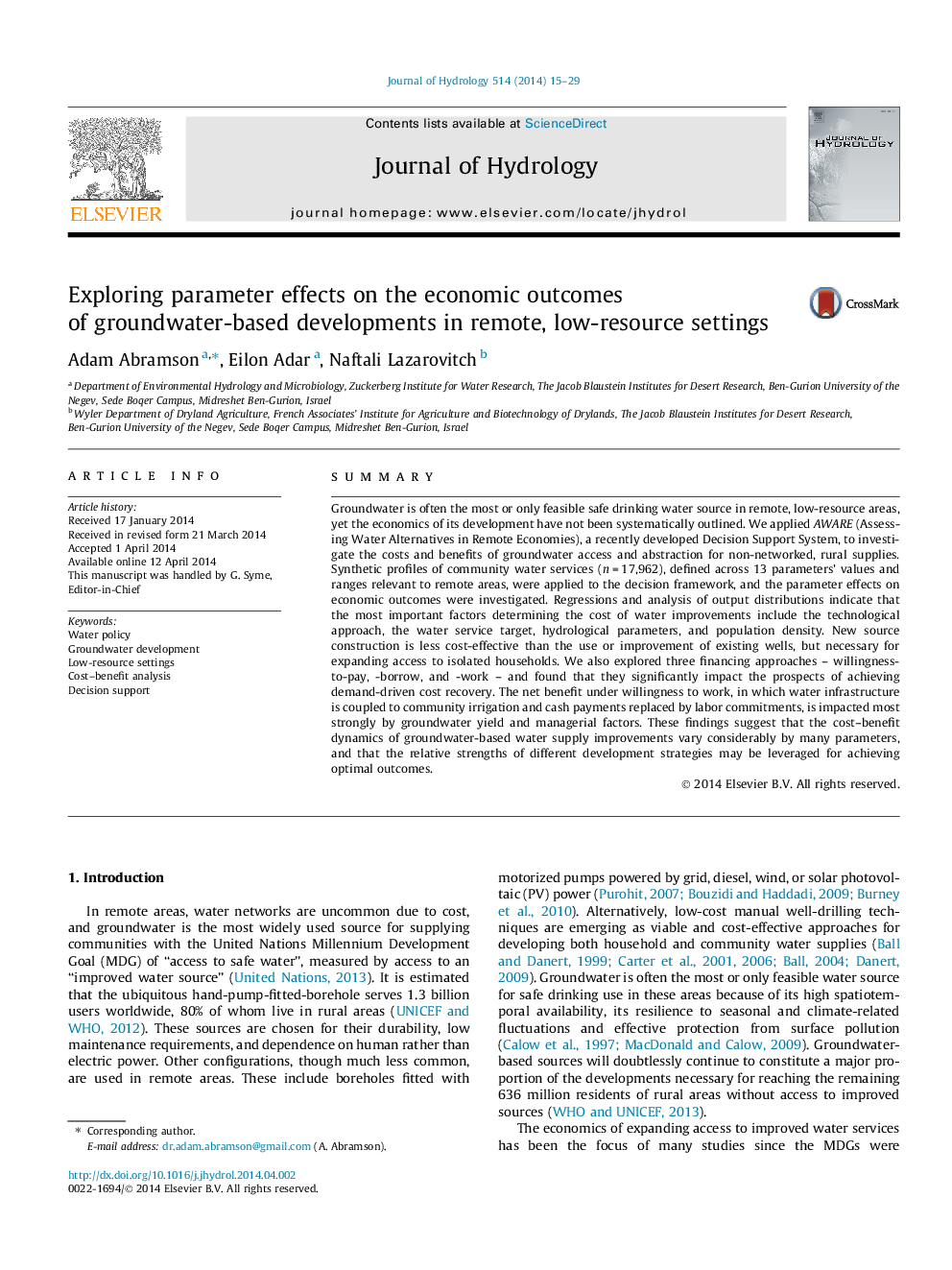| کد مقاله | کد نشریه | سال انتشار | مقاله انگلیسی | نسخه تمام متن |
|---|---|---|---|---|
| 4575999 | 1629934 | 2014 | 15 صفحه PDF | دانلود رایگان |
• A wide range of parameters impact the economic outcomes of remote water services.
• Policy choices are among the most economically important parameters.
• Widening the choice of technologies and management dimensions improves outcomes.
• Within communities, marginal costs may be expected to rise with service reach.
• Designing revenue from irrigation into systems alters parameter effects.
SummaryGroundwater is often the most or only feasible safe drinking water source in remote, low-resource areas, yet the economics of its development have not been systematically outlined. We applied AWARE (Assessing Water Alternatives in Remote Economies), a recently developed Decision Support System, to investigate the costs and benefits of groundwater access and abstraction for non-networked, rural supplies. Synthetic profiles of community water services (n = 17,962), defined across 13 parameters’ values and ranges relevant to remote areas, were applied to the decision framework, and the parameter effects on economic outcomes were investigated. Regressions and analysis of output distributions indicate that the most important factors determining the cost of water improvements include the technological approach, the water service target, hydrological parameters, and population density. New source construction is less cost-effective than the use or improvement of existing wells, but necessary for expanding access to isolated households. We also explored three financing approaches – willingness-to-pay, -borrow, and -work – and found that they significantly impact the prospects of achieving demand-driven cost recovery. The net benefit under willingness to work, in which water infrastructure is coupled to community irrigation and cash payments replaced by labor commitments, is impacted most strongly by groundwater yield and managerial factors. These findings suggest that the cost–benefit dynamics of groundwater-based water supply improvements vary considerably by many parameters, and that the relative strengths of different development strategies may be leveraged for achieving optimal outcomes.
Journal: Journal of Hydrology - Volume 514, 6 June 2014, Pages 15–29
